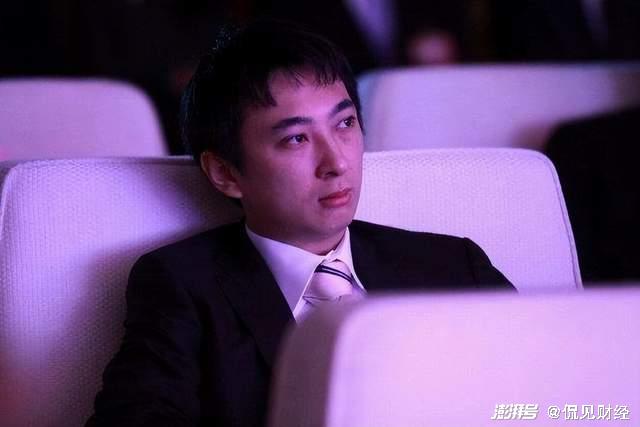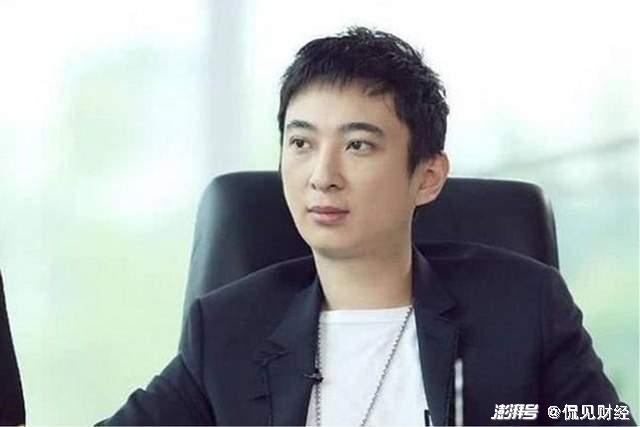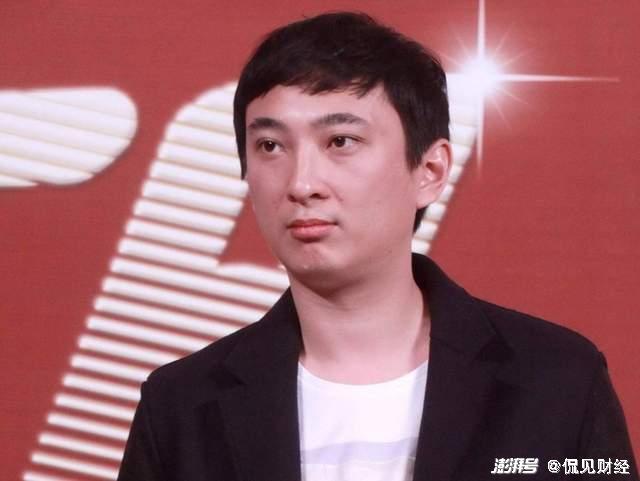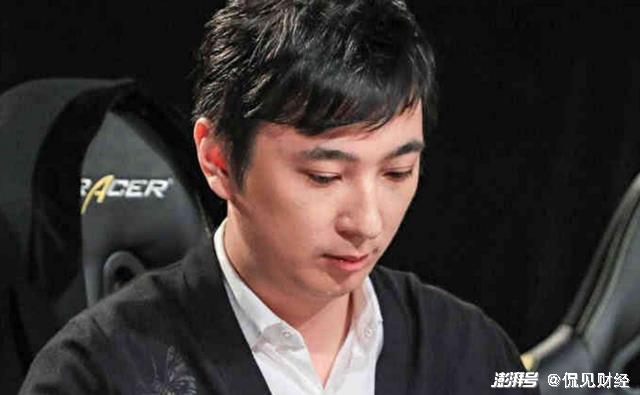The topic of "Wanda’s successor", which has been hotly discussed for nearly a decade, finally has an answer recently.
On August 29, the Beijing News reporter found from Qichacha that Wang Sicong was no longer a director of Dalian Wanda Group Inc., Ltd.; and not long after, some media reported that for the choice of successor, Wang Jianlin had recently made up his mind, Wang Sicong withdrew from the ranks of successors, and eventually succeeded by a team of professional managers.

As one of the largest commercial groups in China, Wanda Group has always been the focus of everyone’s attention, and with the increasing age of founder Wang Jianlin, the topic of succession has begun to be hotly discussed by everyone. In fact, since the collapse of Panda TV three years ago, there have been media reports that "Wang Sicong will return to Wanda and start to take over with peace of mind". However, people did not expect that Wang Sicong not only did not learn how to take over, but now directly withdrew from the list of Wanda successors.
Faced with the choice of successor, why did Wang Jianlin finally choose a professional manager instead of Wang Sicong? Without the pressure of succession, how far will Wang Sicong’s future go?
Wang Sicong’s little-known "B-side"
The playboy may be the first impression many people have of Wang Sicong.
Pick up girls, drive luxury cars, go to bars, and fight celebrities. These words that don’t seem to be very progressive may have become "keywords" that are deeply tied to Wang Sicong; but in fact, in addition to the side that everyone often sees, this rich second generation actually has another side that is little known.
Wang Sicong was born in Dalian, Liaoning Province on January 3, 1988; in the same year, Wang Jianlin founded Wanda Group.
Due to being busy with the company’s business, Wang Jianlin did not have much time to take care of Wang Sicong, so at the age of 2, Wang Sicong started kindergarten; after a few years, Wang Sicong was sent to Singapore to study in primary school, and then came to Winchester College in the UK to study in middle school. Finally, at the university level, Wang Sicong was admitted to the Department of Philosophy of the University of London with a perfect score of IELTS.

From the perspective of his studies alone, Wang Sicong obviously has little to do with the word "playboy"; in an interview, Wang Sicong even said that "I didn’t know my family was rich until I was 16 years old."
In 2009, after graduating from college, Wang Sicong returned to China. Faced with his father’s planned succession arrangement, Wang Sicong resolutely chose to refuse. "When you are young, you should do what you like," Wang Sicong told Wang Jianlin.
For his son’s choice, Wang Jianlin finally made a compromise and gave Wang Sicong 500 million yuan in start-up capital, while Wang Sicong opened a different life.
In 2010, Wang Sicong, who held 500 million yuan, established Pusi Investment and started his own investment path.
According to the official website, Pusi Capital is an investment institution focusing on investing in early and growth opportunities in the Internet, technology, and consumer fields. It manages a total of 4 RMB and US dollar funds and manages assets of more than 1 billion US dollars. Among them, Meituan, Dewu, Flash, Xiaoguo Culture, Lele Tea, Qihoo 360, Netfish Internet Cafe, Bilibili, iDreamSky and other well-known companies have received investment from Pusi Capital.
In the first few years, Wang Sicong’s Pusi Capital could be regarded as a top investment institution, and many of the companies he invested in eventually went public. For example, in 2013, Pusi Capital acquired a 1.05% stake in Yunyou Holdings for US $4 million, and 185 days later, Yunyou Holdings successfully went to Hong Kong for IPO; and in July 2014, Pusi Capital’s Pigeon Interactive was successfully listed on the main board of Hong Kong not long after.
With one successful investment after another, Wang Sicong’s principal is also getting bigger and bigger. In the 2017 Hurun 80 wealth inheritance rich list, Wang Sicong ranked second with 5 billion worth, if Wang Jianlin’s 500 million is deducted, in just 8 years, Wang Sicong himself has also earned 4.50 billion.
After setbacks, Wang Sicong’s dream shattered "Pan Entertainment Empire"
In addition to being an investor, Wang Sicong also has another important identity – the owner of an e-sports club.
As a post-80s generation, Wang Sicong is naturally also very interested in online games and e-sports, so in 2011, Wang Sicong announced his entry into the e-sports circle and acquired the CCM team – the predecessor of the "IG team" that later won the global championship in the Chinese division, and also emphasized that he wants to integrate the e-sports industry.
Of course, the acquisition of the e-sports team is only the first step for Wang Sicong to integrate the e-sports industry. In July 2015, Wang Sicong founded Panda TV; in the same year, Wang Sicong also acquired a 3.96% stake in LeTV Sports through Pusi Capital, becoming the eighth largest shareholder of LeTV Sports.

Judging from the frequent capital movements at that time, Wang Sicong’s ambition was not small – he wanted to start in the field of e-sports, connect e-sports, sports, film and television, music and other territories through live broadcast platforms, and eventually create a "pan-entertainment empire" of his own.
However, it is obviously not so easy to build a "pan-entertainment empire", and Wang Sicong soon began to hit a wall. In the second year of investing in LeTV Sports, LeTV Sports was exposed to have misappropriated more than 4 billion yuan without the consent of the board of directors and shareholders. With the gradual decline of LeTV Sports, Wang Sicong suffered heavy losses.
For its push Panda TV, although the first two years of development have been smooth sailing, even in May 2017 also completed 1 billion yuan B round of financing, but due to non-standard management, Panda TV was supervised for many interviews, and with the live trend of the past, finally to March 30, 2019, Panda TV announced the official closure of the station.
Of course, in addition to the failed LeTV sports investment and Panda TV, Wang Sicong’s "banana plan" has to be mentioned.
In order to complete the "Pan-Entertainment Empire" plan, Wang Sicong successively established Shanghai Banana Project Culture Development Co., Ltd., Shanghai Banana Project Sports Culture Co., Ltd., Shanghai Banana Project Performance Brokerage Co., Ltd., Shanghai Banana Project Video Game Co., Ltd., and Shanghai Banana Project Music Co., Ltd., wanting to carry out games, sports, brokerage performances, film and television, music and other businesses through these companies.
But in 2019, along with the collapse of Panda TV, Wang Sicong’s "banana plan" also failed. According to media reports, in July 2019, the banana plan and the new equity of banana entertainment were frozen, and Wang Sicong’s relevant equity was frozen; in November of the same year, China Execution Information Open Network showed that Wang Sicong was listed as the person to be executed by the Beijing Second Intermediate People’s Court, and the execution target was 151 million yuan; then Wang Sicong was repeatedly issued by the court to restrict consumption orders.
Exit the succession sequence
After the "rout" in 2019, many media reported that Wang Sicong will return to Wanda to "take over with peace of mind".
However, people did not expect that Wang Sicong not only did not succeed, but resigned as a director of Wanda. In addition, according to media reports, for the choice of successor, Wang Jianlin has recently made up his mind that Wang Sicong will withdraw from the succession sequence and eventually be succeeded by a team of professional managers.

In fact, as for how to choose a successor, Wang Jianlin has also responded before.
In a 2012 interview, Wang Jianlin said: "If you think Wang Sicong is reliable, there is no problem in handing it over to him; if you think he lacks a little ability, then let him be a shareholder, and I will hand it over to a professional manager, which is fine." In a speech at the China Entrepreneur Forum in December 2016, Wang Jianlin once again stated his attitude: "Respect Wang Sicong’s choice, professional managers have a reserve team, maybe it will be better for enterprises to be handed over to professional managers."
From Wang Jianlin’s several statements, it is not difficult to see that in the face of Wang Sicong’s succession, Wang Jianlin is actually more willing to hand over the enterprise to professional managers.
In fact, it has become very common to hand over enterprises to professional managers, such as the domestic real estate giant Vanke, which also uses the professional manager management system, and the American retail giant Walmart, which is also managed by professional managers. Therefore, it is not uncommon for Wang Jianlin to hand over enterprises to professional managers.
For Wang Sicong, judging from his early entrepreneurial journey, Wang Sicong is obviously more interested in investment, especially as Panda TV eventually goes bankrupt. It is not difficult to see that Wang Sicong is not so good at business management, which may also be one of the important reasons why Wang Jianlin did not hand over the business to Wang Sicong.
However, although he is no longer a director of Wanda Group, according to media reports, Wang Sicong is still acting as the legal representative of 9 companies, including Junyu Cultural Development Center and Beijing Pusi Investment Co., Ltd., as a shareholder in 30 companies, and as an executive in 22 companies.
Perhaps, without the pressure of succession, Wang Sicong can go further and further on the road of investment and carve out his own world.